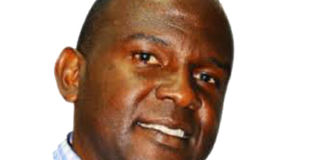It’s high time media took special care of foot soldiers

What you need to know:
To remain relevant. For the media to remain relevant, it needs to have the sort of foot soldiers in their ranks to help bring out these stories very well. If a deliberate effort is not made to build the legions, equip them and maintain them, the ending will not be a happy one.
It is difficult to put words to the way you feel when a person you were supposed to meet for a crucial matter does not show up. You call their phone repeatedly and it is off.
You struggle to get to them and you find them on a hospital bed nursing injuries occasioned on them by the police and other security agencies. Their crime? They are journalists who unfortunately were ‘caught’ in the act of covering the strike against tuition increment at Makerere University Kampala.
The story of beating up journalists by both security agents and ordinary citizens is not a new one. In 2017, the DPC of Old Kampala Police Station was convicted for beating and damaging the spine of former WBS journalist Andrew Lwanga. Lwanga was filming a demonstration. He spent more than Shs100m while the officer went off lightly with a fine of Shs1m and was asked to ‘compensate’ Lwanga with Shs5m
James Akena, a cameraman with Reuters, is currently confined to a wheel chair after being pounced on by soldiers, who beat him while he knelt down helplessly.
There was also the case of the late Mubiru Kakebe of the Vision Group, who was attacked by a tipsy woman as he was taking pictures on a boat cruise. He eventually died from complications arising from the wounds he sustained.
Many times, these criminal acts are irresponsibly dismissed as ‘occupational hazards,’ for which media owners and managers write ‘strongly’ worded editorials.
Violence against the media but most especially foot soldiers – reporter in the field - contributes very negatively towards the progress of the profession. Many I know of will never go anywhere near charged spaces where you have the army or the police, for fear of being harmed. They end up giving the sort of frustrating reports that you find on social media; full of rumour, hearsay and innuendo.
It also does not act as motivation for those who would want to join the media. The fact that most of those who have been harmed are left to their own devices just makes it worse. It breeds a spirit that encourages many to take care of themselves for the rainy day - if it ever comes. What you get is the birth and growth of unethical behaviour. Besides paying journalists better, insuring their lives and properties like cameras, etc, it is important that media managers make it a policy to go all the way and prosecute those who harm their employees so as to make the habit a risky business.
Otherwise, the media eventually loses out on many fronts. First you hardly retain good and quality staff. Many are in the media simply taking shelter from the rain and will jump as soon as the sunshine of greener pastures, where one is not only paid better, but is also shielded from the risk of this senseless violence, as they go about their work of reporting. Huge staff turnover is a cost in that you lose a lot by way of institutional memory.
The media wastes a lot of resources every so often in training and motivating people it does not retain for a time long enough to recoup their investment. You end up with news that is full of absurd stories that betray very young news rooms that are uncomfortable with putting names, dates and events together.
Many times the reporting too is proof of an underdeveloped or inherently poor news sense, analysis and judgment of events as they unfold. Yet these aspects may be developed with time, passion, and the security that comes with good motivation.
To get most of these things like protection, motivation and retaining of people in the media takes a lot of thought, time and financial investment for which media owners may not exactly be comfortable with because they are looking at the bottom line. But in the long-run, the balance sheet will be affected and the media will lose. If those who consume the news no longer find it worthy simply because it is being delivered by people who are short on know-how and experience, they will find the alternative of depending on social media, rumour and fake news which has been popularised by the internet.
For instance, in the case of the strike at Makerere University, it is important that we invest in interrogating the claim that students who went on strike were high on drugs. What sort of drug is this that leads a diverse society to protest about a common grievance? Where is it manufactured and who distributes it? Who are the opposition politicians and the foreign countries that always mislead the students into striking and why aren’t they ever adequately or brought to book?
What about the thugs who go on rampage in the surroundings of the university looting and vandalising property as if they are above the laws of the land? What is their story?
This, besides knowing the number of students, what is collected from them, how it is spent, and if there is a surplus or deficit, should be the story besides the dramatic footage and commentary on the running battles.
For the media to remain relevant, it needs to have the sort of foot soldiers in their ranks to help bring out these stories very well. If a deliberate effort is not made to build the legions, equip them and maintain them, the ending will not be a happy one.
Mr Sengoba is a commentator on political and social issues. [email protected].
Twitter:@nsengoba


